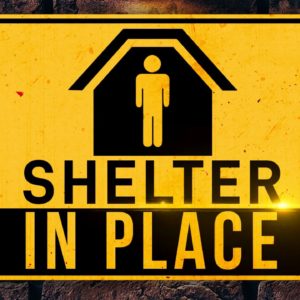A recent report from data analysts at the personal-finance website WalletHub reveals a drastic difference in the ways states are approaching the fight to stop the spread of the coronavirus. But the net impact of those differences may be less than meets the eye.
As of Wednesday, at least 196 million people in 21 states, 37 counties and 16 cities are being urged to stay home.
Some states, like California and New York, have taken what appear to be draconian measures, ordering citizens to “shelter in place.” While others, like Mississippi, were still allowing restaurants to serve on site.
WalletHub’s most recent report on how states are reacting — the “Most Aggressive States Against the Coronavirus” — shows which are taking stringent actions to combat the coronavirus and which are not. California leads the pack.
“Measures the state has taken to limit virus exposure include mandatory quarantine, passing legislation responding to COVID-19, postponing legislative sessions…,” WalletHub analyst Jill Gonzalez told InsideSources. “California has one of the biggest epidemiology workforces per capita, as well as the highest share of workers with access to paid sick leave, 91 percent.”
“It’s also among the states that have banned large gatherings, closed schools, restaurants and bars, and activated the National Guard in response to the Coronavirus pandemic.”
Mississippi ranked dead last in the latest report.
“Although Mississippi has a large share of confirmed Coronavirus cases, the state has a small epidemiology workforce, and very few emergency centers and services per capita,” Gonzalez said. “The state has not taken aggressive measures against the virus, as it hasn’t restricted travel, hasn’t banned large gatherings, and hasn’t activated the National Guard. Throughout the state restaurants and bars remain open, and there is no curfew or quarantine in place.”
But is the difference truly that drastic? Are states like California really on virtual lockdown?
“There are seven states that have imposed statewide mandatory quarantine: California, Illinois, Indiana, Louisiana, Michigan, New Jersey and Ohio,” Gonzalez said. “Four states have imposed mandatory quarantine only for high-risk groups: Alaska, Hawaii, New York and Rhode Island.” In addition, Idaho has imposed mandatory quarantine only on affected counties, and Pennsylvania’s governor ordered all “non-essential” businesses to close.
However, a close examination shows the actual impact of these orders is relatively modest. For example, mass transit is still up and running in states like New York and Pennsylvania. Restaurants are still offering pick-up and delivery service in every “mandatory shut down” state.
As for sending non-essential workers home, the list of “essential” employees is often so broad that many Americans in these quarantine states are literally doing business as usual. In Ohio, for example, the list of “essential workers” includes labor union officials, plumbers and pawnbrokers — not to mention people licensed to grow pot.
And it’s not just Ohio. Colorado’s order to shut down non-essential businesses labels the state’s cannabis dispensaries as “critical” and therefore will remain open.
In Pennsylvania — which ranks 29 on the WalletHub list —state police say that, despite rumors to the contrary, all highways remain open. Oil and gas production is still up and running, and the Pennsylvania Game Commission says it has not canceled the 2020 hunting seasons.
Are people who are free to shop, hunt and buy cannabis brownies really living under a lockdown?
In New Hampshire, GOP Gov. Chris Sununu has thus far rejected calls to issue a “stay at home” order, noting that voluntary closures by many businesses and social distancing practices have had essentially the same effect.
“I understand a lot of folks are asking about a ‘shelter-in-place initiative,’ and comparing New Hampshire with Massachusetts and New York — two states with high-density areas and large numbers of confirmed cases,” Sununu said at a coronavirus news briefing. “Please keep in mind, even in these states there are not ‘shelter-in-place’ orders. They are asking folks to stay at home, just like we are here in New Hampshire.”
Interestingly, even without a quarantine order, New Hampshire ranks fourth on WalletHub’s list of states taking the most aggressive action.
“This study recognizes we are taking unprecedented and proactive steps. Testing is ramping up. And we are working around the clock to slow and mitigate the spread of COVID-19 here in New Hampshire,” Sununu told InsideSources.

